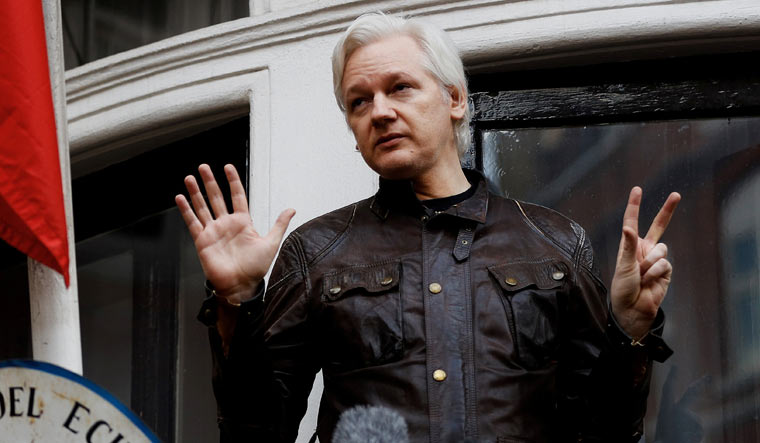A UK court on Monday ruled against extraditing Wikileaks founder Julian Founder to the United States, which seeks his prosecution on grounds of violating the Espionage Act. District Judge Vanessa Baraitser said extradition would be oppressive to Assange’s mental health.
Among the arguments cited for this decision was the view that procedures described by the US for Assange’s incarceration in a ‘Supermax’ prison facility would not prevent him from taking his own life.
"Faced with conditions of near total isolation ... I am satisfied that the procedures (outline by U.S. authorities) will not prevent Mr. Assange from finding a way to commit suicide," she said. Judge Baraitser gave her ruling at London’s Central Criminal Court, following a three-week extradition hearing in the fall.
The US government is likely to appeal the decision.
Let this be the end of it. https://t.co/d9GDima1PA
— Edward Snowden (@Snowden) January 4, 2021
The case has been closely followed for its significance to whistle-blowers and free speech across the world. The prosecution of Assange has been condemned by journalists and human rights groups, who say it undermines free speech around the world.
Assange is accused of aiding the leak of over 500,000 classified American military documents of US actions in Afghanistan and Iraq, having received intelligence from former marine Chelsea Manning. Since 2010, he has remained in the United Kingdom, after surrendering himself to British authorities that year. Between 2012 and 2019, Assange sought asylum within the Ecuadorian embassy—a seven-year stay that ended once his relationship with Ecuador soured.
US prosecutors have indicted Assange on 17 espionage charges and one charge of computer misuse. The charges carry a maximum sentence of 175 years in prison.
Lawyers for the 49-year-old Australian argue that he was acting as a journalist and is entitled to First Amendment protections of freedom of speech for publishing leaked documents that exposed US military wrongdoing in Iraq and Afghanistan.
In closing submissions, Assange's legal team accused the United States of an extraordinary, unprecedented and politicised prosecution that sought to criminalise obtaining and publishing information relating to national security.
The defence argued that extradition threatens Assange's human rights because he risks a grossly disproportionate sentence and detention in draconian and inhumane conditions that would exacerbate his severe depression and other mental health problems.
Lawyers for the US government deny that Assange is being prosecuted merely for publishing the leaked documents, saying the case is in large part based upon his unlawful involvement in the theft of the diplomatic cables and military files by US Army intelligence analyst Chelsea Manning.
Assange's partner, Stella Moris, who had two sons with him while he lived in the embassy, has appealed to President Donald Trump to pardon Assange before Trump leaves office on Jan. 20.
Edward Snowden also tweeted, minutes before the decision, calling on President Trump to pardon Assange.
Trump “must immediately pardon #Assange if America's constitutional values are to mean anything at all. With the UK court's decision to criminalize some of the most important journalism of this century, there is no longer any alternative,” Assange tweeted.
With inputs from PTI







